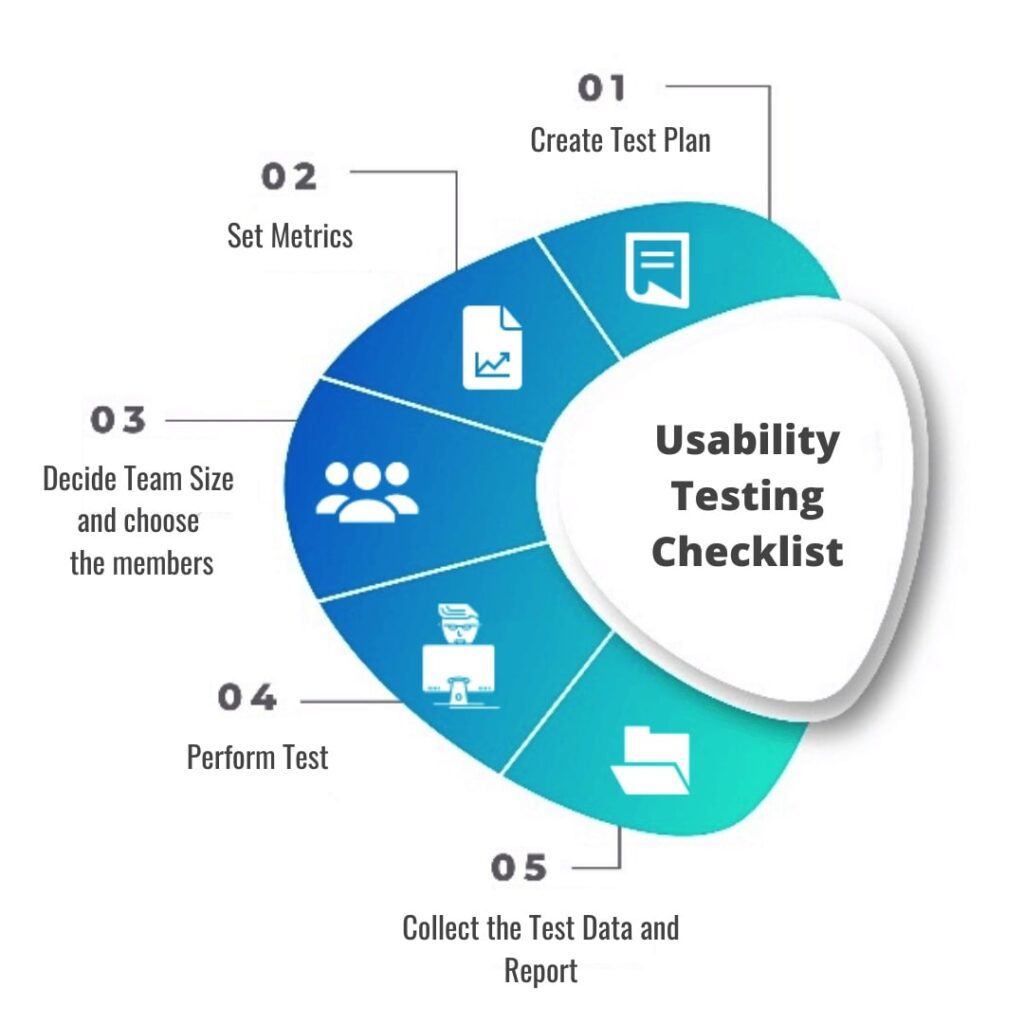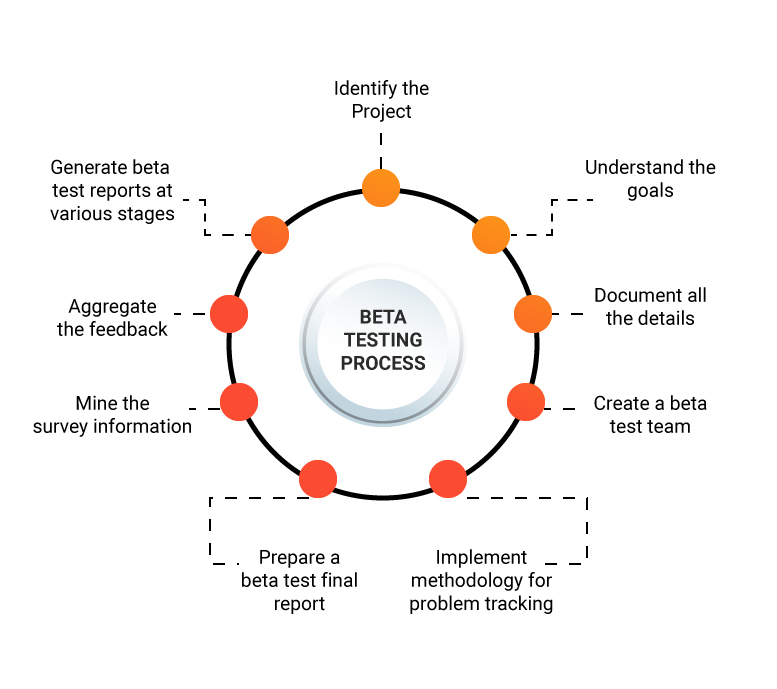Types Of Questions To Ask For Beta Testing Software Development – A Complete Guide!
Beta testing helps identify bugs, assess usability, and refine features to improve software quality and experience.
In this article, we will discuss the different types of questions to ask during the beta testing phase of software development. By the end of this guide, you’ll have a clear understanding of how to structure your beta testing feedback and gather the insights necessary to enhance your product.
Table of Contents
General Usability Questions:

The first set of questions should address the software’s general usability. These questions aim to understand how intuitive the software is for users, how easily they can navigate through it, and whether they can achieve their goals without difficulty.
Example Questions:
- How easy was it to get started with the software?
- Did you find the user interface (UI) intuitive? If not, what could be improved?
- Were there any points where you felt confused or unsure of what to do next?
- How would you rate the overall ease of use of the software on a scale of 1 to 10?
- Did you face any challenges while navigating the software? If so, what were they?
These questions help identify any barriers to usability, which can lead to smoother user experiences in future versions.
Performance and Speed Questions:
Performance and speed are crucial aspects of any software application. Beta testers should evaluate how the software performs under different conditions, such as varying internet speeds or hardware capabilities. This will ensure the software is optimized and performs efficiently.
Example Questions:
- How would you rate the performance of the software (loading times, response times)?
- Were there any delays or performance issues you noticed during use?
- Did the software function smoothly on your device, or did you experience any crashes or freezes?
- How does the software perform under high usage or load?
By asking these questions, you can address performance bottlenecks and optimize the software for better performance.
Bug Reporting Questions:
Bugs are an inevitable part of software development, and beta testers play a vital role in identifying them. It’s important to ask detailed questions that help testers provide precise bug reports, making it easier for the development team to track and fix issues.
Example Questions:
- Did you encounter any bugs or glitches during your testing?
- If you did, could you describe the issue in detail? What actions led to the bug?
- Were there any specific features that seemed prone to bugs or errors?
- Were there any error messages you encountered? If so, what did they say, and when did they appear?
- How frequently did the bugs occur? Were they reproducible or one-off incidents?
Detailed bug reports are essential for efficient debugging and improving software stability.
Read More: Is Cisco Fpr Software Or Hardware
Feature Feedback Questions:
During beta testing, testers provide valuable feedback on the features and functionality of the software. These questions help you understand whether the software’s features meet user needs and expectations.
Example Questions:
- Are there any features you found particularly useful or interesting?
- Are there any features you believe are missing or would like to see added in future versions?
- How well do the features work together?
- Is there any inconsistency between them?
- Were there any features that you felt didn’t work as expected or were confusing to use?
Feature feedback can highlight areas where the software can be expanded or improved, ensuring the final product meets user needs.
Compatibility Questions:
Beta testers should evaluate how well the software functions across different platforms, devices, and operating systems. This feedback helps ensure the software is compatible with a wide range of environments.
Example Questions:
- Did the software function well on your device and operating system?
- Were there any compatibility issues with specific browsers or devices (mobile, tablet, desktop)?
- Did you encounter any issues when switching between devices or operating systems?
- Were there any problems related to integration with other software or systems?
Addressing compatibility issues ensures that your software can be used by a broad audience without problems, increasing its reach and adoption.
Security and Privacy Questions:

Security and privacy are increasingly important in today’s digital landscape. Beta testers should evaluate how well the software protects user data and prevents unauthorized access. Asking the right questions here is crucial for identifying potential vulnerabilities.
Example Questions:
- Do you feel that the software adequately protects your personal information and data?
- Were you informed about the data collection and privacy policies of the software?
- Did you notice any potential security risks or vulnerabilities while using the software?
- How would you rate the security features of the software (password protection, data encryption)?
Security feedback helps developers ensure that sensitive data is protected and that users feel safe using the software.
User Experience (UX) and Design Questions:
User experience (UX) and design are critical factors in determining how users interact with software. Beta testers can provide insights into how well the design aligns with user needs and how enjoyable the software is to use.
Example Questions:
- How would you describe the design of the software?
- Is it visually appealing?
- Did you find the layout and navigation intuitive and easy to understand?
- Were there any design elements that made using the software difficult or frustrating?
- How does the software compare to other similar software in terms of user experience?
These questions help assess whether the design supports a positive user experience and identify areas where the design could be refined.
Help and Support Questions:
When using new software, users often encounter situations where they need assistance. Beta testers can evaluate how well the help and support resources are integrated into the software, such as documentation, tutorials, and customer support.
Example Questions:
- Did you find the help resources (manuals, FAQs, etc.) easy to access and understand?
- Were you able to resolve any issues with the software using the help and support features?
- If you needed assistance, did the customer support team respond quickly and effectively?
- How would you rate the overall quality of customer support provided?
Feedback on help and support ensures that users can easily get assistance if needed and that they have the resources to troubleshoot issues on their own.
Final Impressions and Suggestions for Improvement:
At the end of the beta testing phase, it’s important to gather overall feedback from testers, including their impressions of the software and suggestions for improvement. This will give you a sense of how well the software meets user expectations and what additional changes could enhance the product.
Example Questions:
- What was your overall impression of the software?
- Would you recommend the software to others? Why or why not?
- What improvements would you suggest for the next version of the software?
- Did the software meet your expectations? If not, what areas need improvement?
This feedback provides valuable insights into the overall user sentiment and areas for final refinements before the official release.
FAQ’s:
1.What is beta testing in software development?
Beta testing involves releasing a pre-launch version of software to a group of users to identify bugs and gather feedback before the official release.
2.Why are questions important during beta testing?
Questions help gather detailed feedback on usability, performance, security, and features, leading to improvements and bug fixes before the software is fully launched.
3.What types of questions should be asked during beta testing?
Questions should focus on usability, performance, bugs, feature feedback, security, and overall user experience.
4.How do I collect feedback from beta testers?
Feedback can be collected through surveys, interviews, and bug reporting forms provided to testers after they use the software.
5.What should be done with the feedback collected from beta testing?
The feedback should be analyzed to identify recurring issues or improvement areas, and then used to make necessary updates and fixes before the software’s official release.
Conclusion
Beta testing is a crucial phase in software development that provides valuable insights to improve the final product. By asking the right types of questions, you can gather actionable feedback that will help enhance usability, performance, features, and security. Use the questions outlined in this guide to create a structured approach to beta testing, ensuring that your software is polished, user-friendly, and ready for a successful launch.



